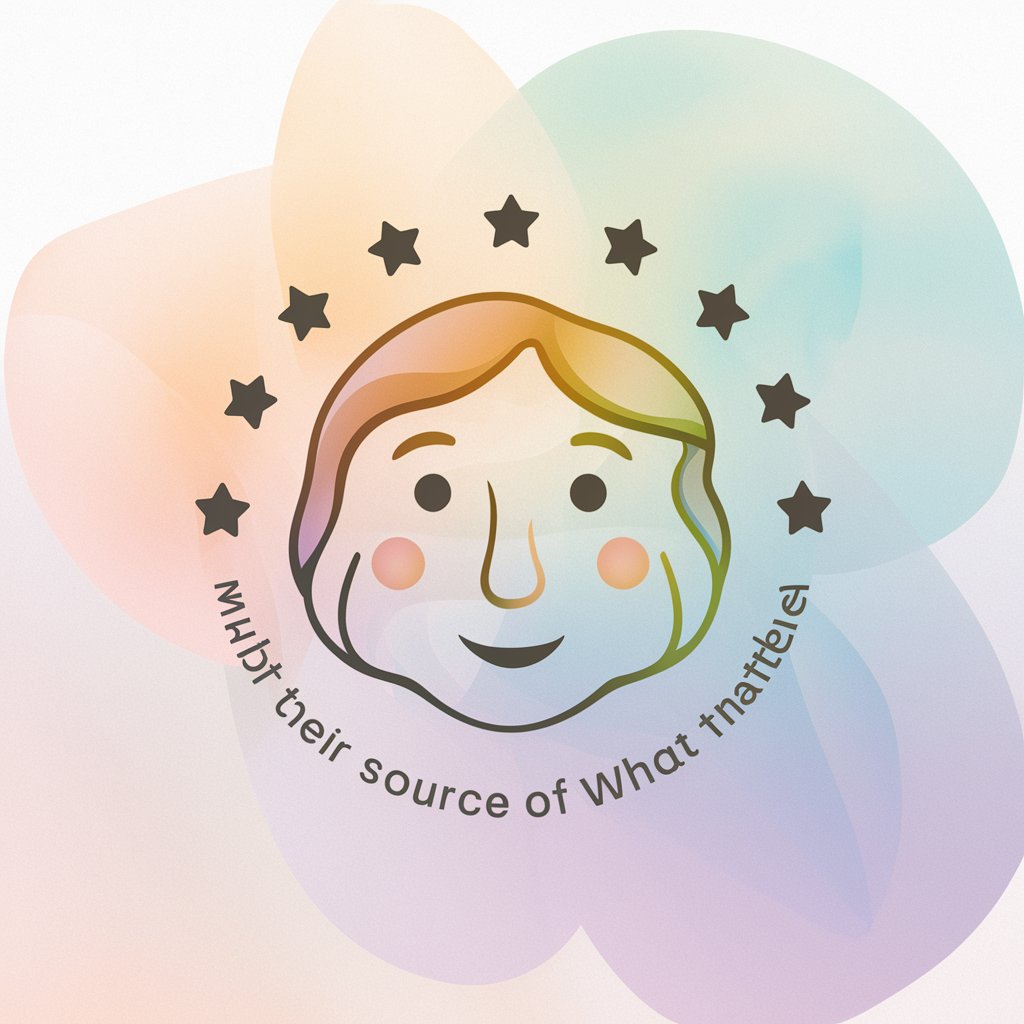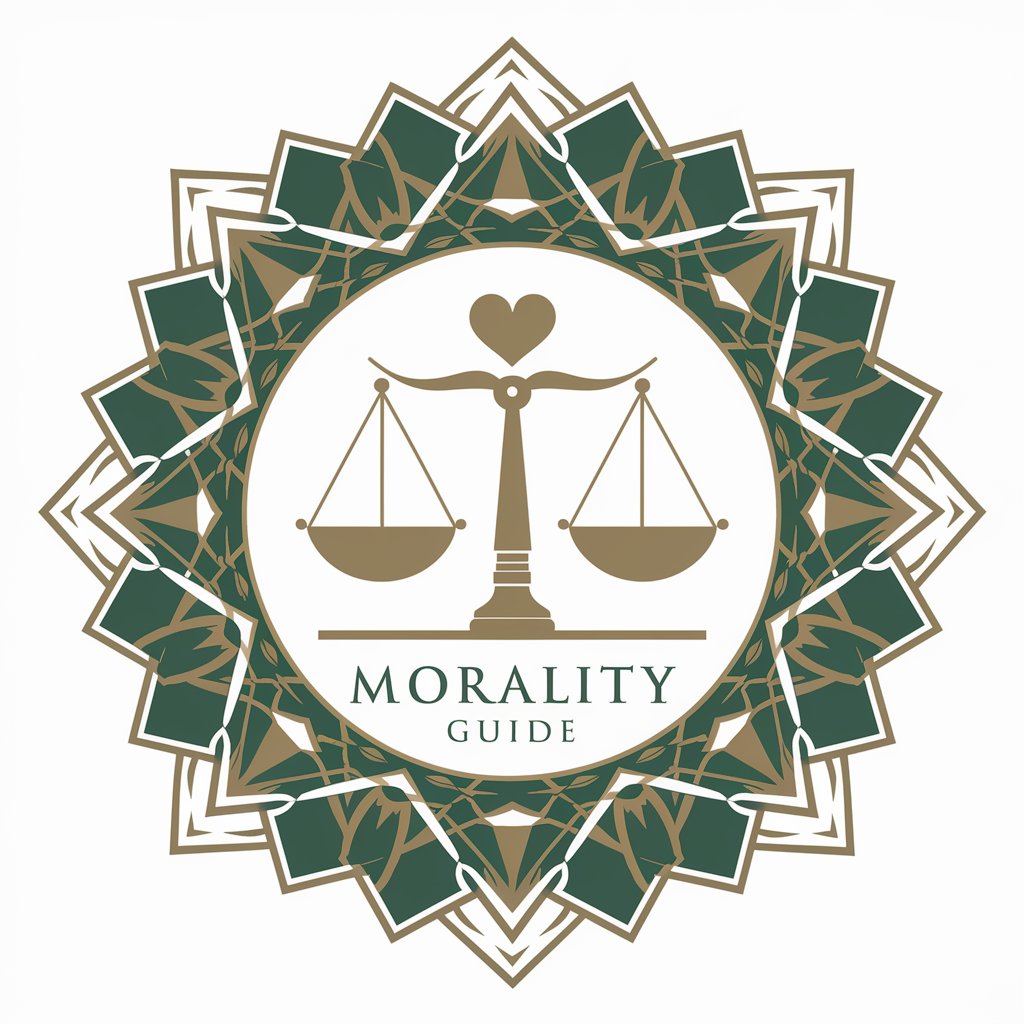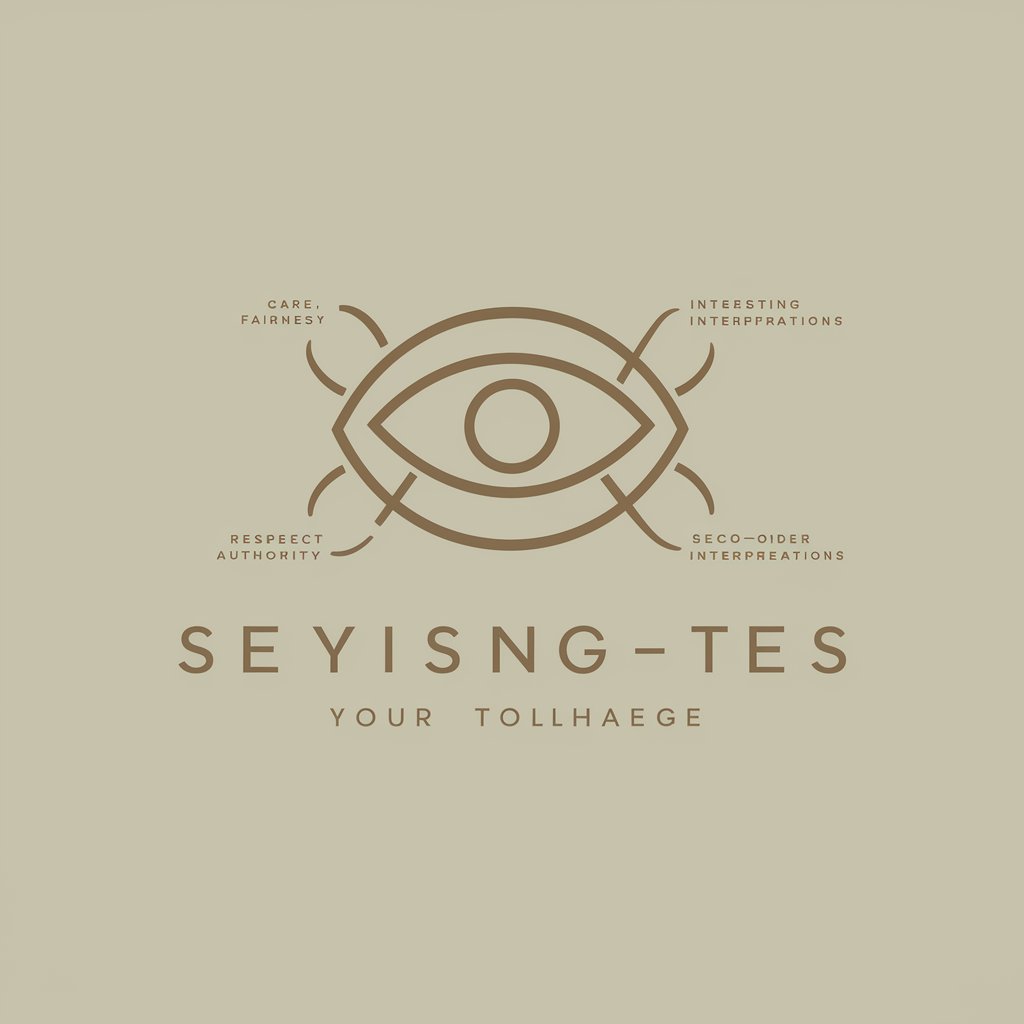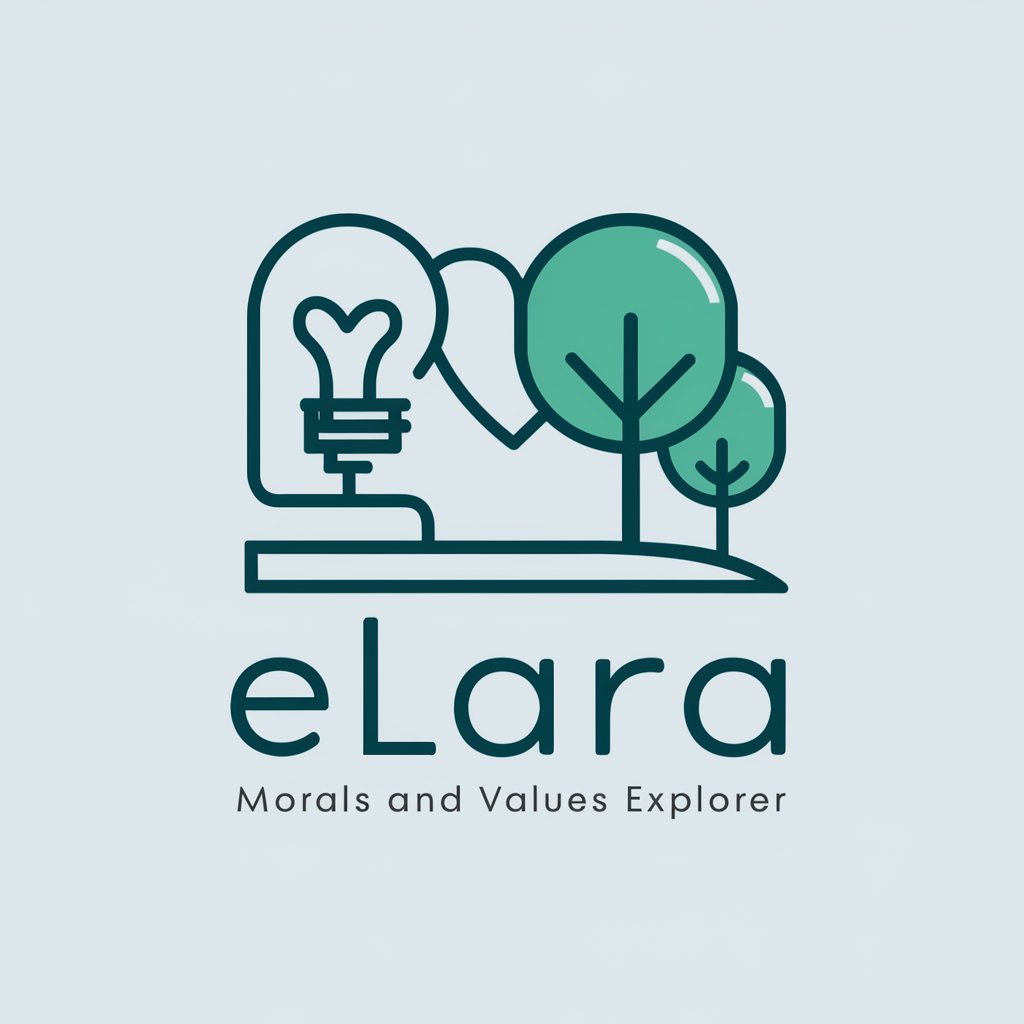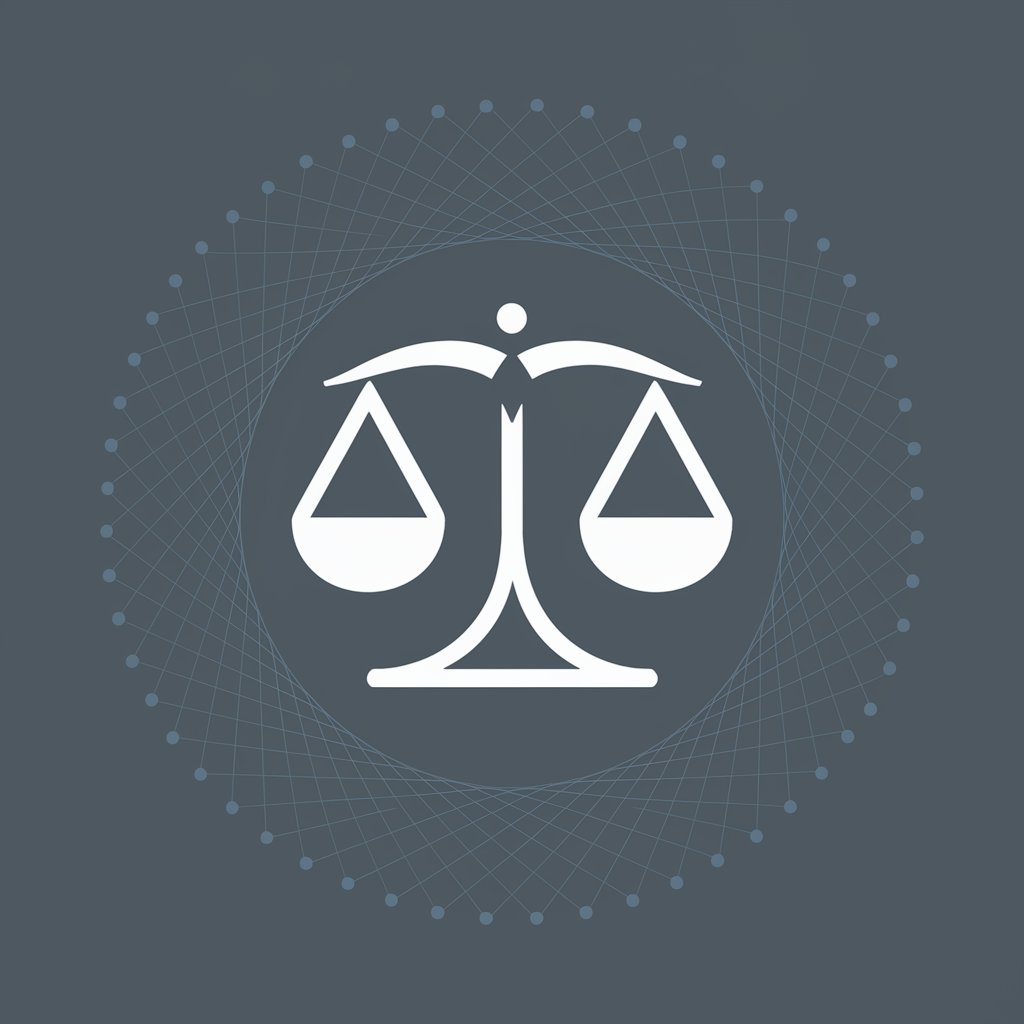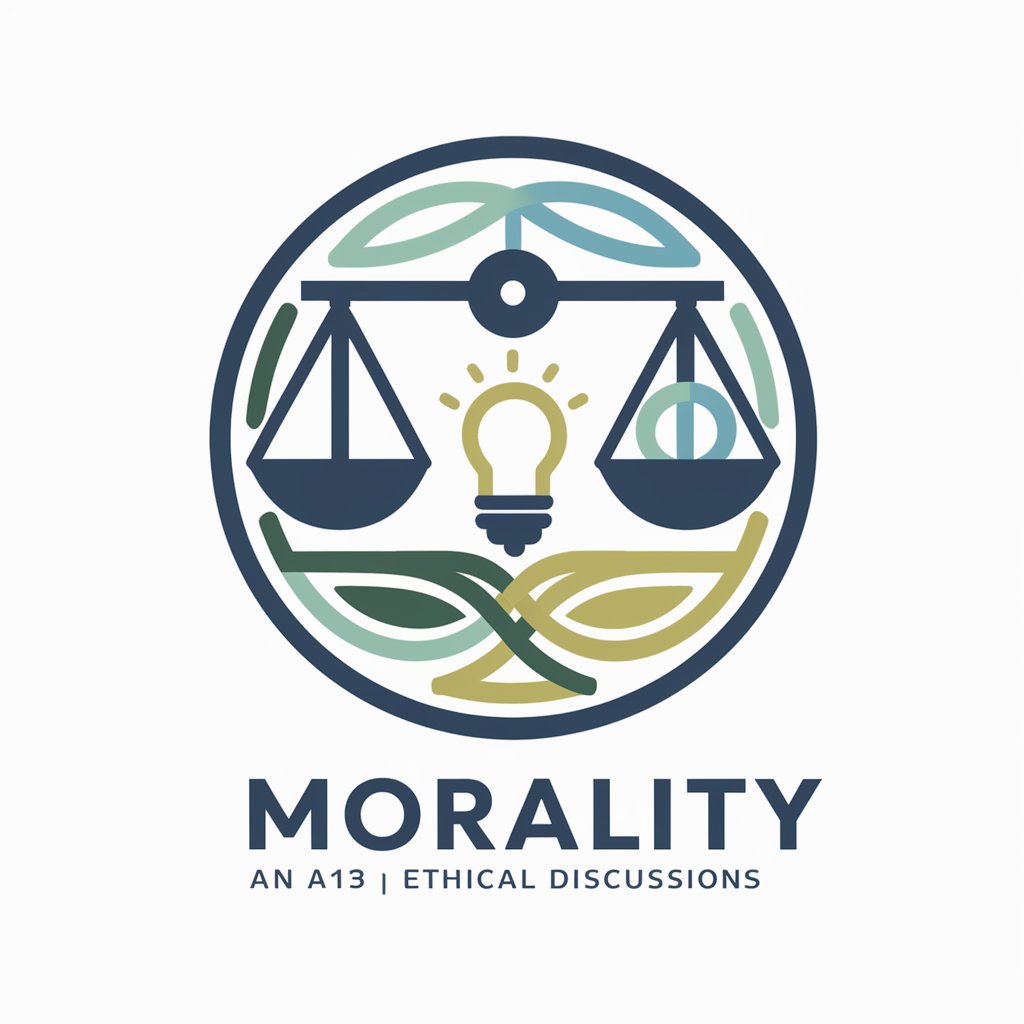
Annotate Universal Values and Moral Foundations - Moral Value Analysis

Welcome! Let's explore the universal values in your thoughts and conversations.
Illuminate Values with AI
Describe a conversation where different universal human values are in conflict.
Explain how basic human values influence decision-making in a challenging situation.
Analyze a recent news article for expressions of universal moral values.
Reflect on a personal experience and identify the underlying moral foundations.
Get Embed Code
Introduction to Annotate Universal Values and Moral Foundations
Annotate Universal Values and Moral Foundations is designed to help users identify and understand the underlying universal human values and moral principles present in texts, conversations, or personal thoughts. It utilizes frameworks from the Moral Foundations Theory and the Theory of Basic Human Values to analyze and label content with specific values such as care, fairness, loyalty, authority, sanctity, and various human values like freedom, achievement, and benevolence. For example, in a political speech that emphasizes national security, tradition, and social order, the tool could identify values of 'Security', 'Tradition', and potentially 'Authority or Respect'. This analysis aids in comprehending how different values motivate actions and opinions, providing insights into the moral dimensions of human interactions and societal issues. Powered by ChatGPT-4o。

Main Functions of Annotate Universal Values and Moral Foundations
Analysis of Texts for Universal Values
Example
Detecting 'Benevolence' and 'Care vs Harm' in charity organization appeals.
Scenario
A user submits a newsletter from a charity organization. The tool analyzes the text, highlighting sentences that emphasize helping others, responsibility, and protecting vulnerable populations, thereby identifying the presence of 'Benevolence' and the 'Care vs Harm' foundation.
Identification of Moral Foundations in Conversations
Example
Identifying 'Fairness or Proportionality vs Cheating' in discussions about social justice.
Scenario
In a transcript of a public forum on social justice, the tool points out arguments and statements that align with the principles of fairness, equality, and justice, thereby mapping these to the 'Fairness' moral foundation.
Educational Applications
Example
Teaching students about the diversity of human values through analysis of historical speeches.
Scenario
Educators use the tool to analyze famous speeches, helping students understand the moral and value-based motivations behind historical figures' actions and societal changes, such as speeches by Martin Luther King Jr. highlighting 'Universalism' and 'Care vs Harm'.
Ideal Users of Annotate Universal Values and Moral Foundations Services
Educators and Students
This group benefits by gaining a deeper understanding of the moral and ethical dimensions in literature, historical documents, and social studies. It helps in cultivating critical thinking and empathy by analyzing diverse perspectives.
Content Creators and Marketers
They can use the service to align their messages with the values of their target audience, ensuring that content resonates on a deeper, moral level, thus enhancing engagement and effectiveness.
Researchers and Academics
Individuals in these fields benefit from the detailed analysis of texts and social phenomena, facilitating the study of moral psychology, ethics, and cultural studies. The tool aids in the categorization and understanding of complex moral narratives and value systems across different societies.
Civic Leaders and Politicians
This group can leverage the tool to craft speeches, policies, and communications that resonate with universal human values, enhancing public support and fostering a deeper connection with constituents by aligning with their moral foundations.

How to Use Annotate Universal Values and Moral Foundations
1
Start by visiting yeschat.ai to explore Annotate Universal Values and Moral Foundations with a free trial, no login or ChatGPT Plus subscription required.
2
Input the text (thoughts, conversations, articles) you want to analyze into the tool to detect underlying universal moral values.
3
Review the annotated text provided by the tool, which highlights universal moral values based on Moral Foundations Theory and Theory of Basic Human Values.
4
Use the insights to deepen your understanding of the text’s moral underpinnings, enhance your critical thinking, or inform your writing and discussions.
5
Experiment with different types of texts to explore the tool's versatility and to gain varied insights into how universal values manifest in diverse contexts.
Try other advanced and practical GPTs
Ask R Discovery
Empowering Research with AI Insight
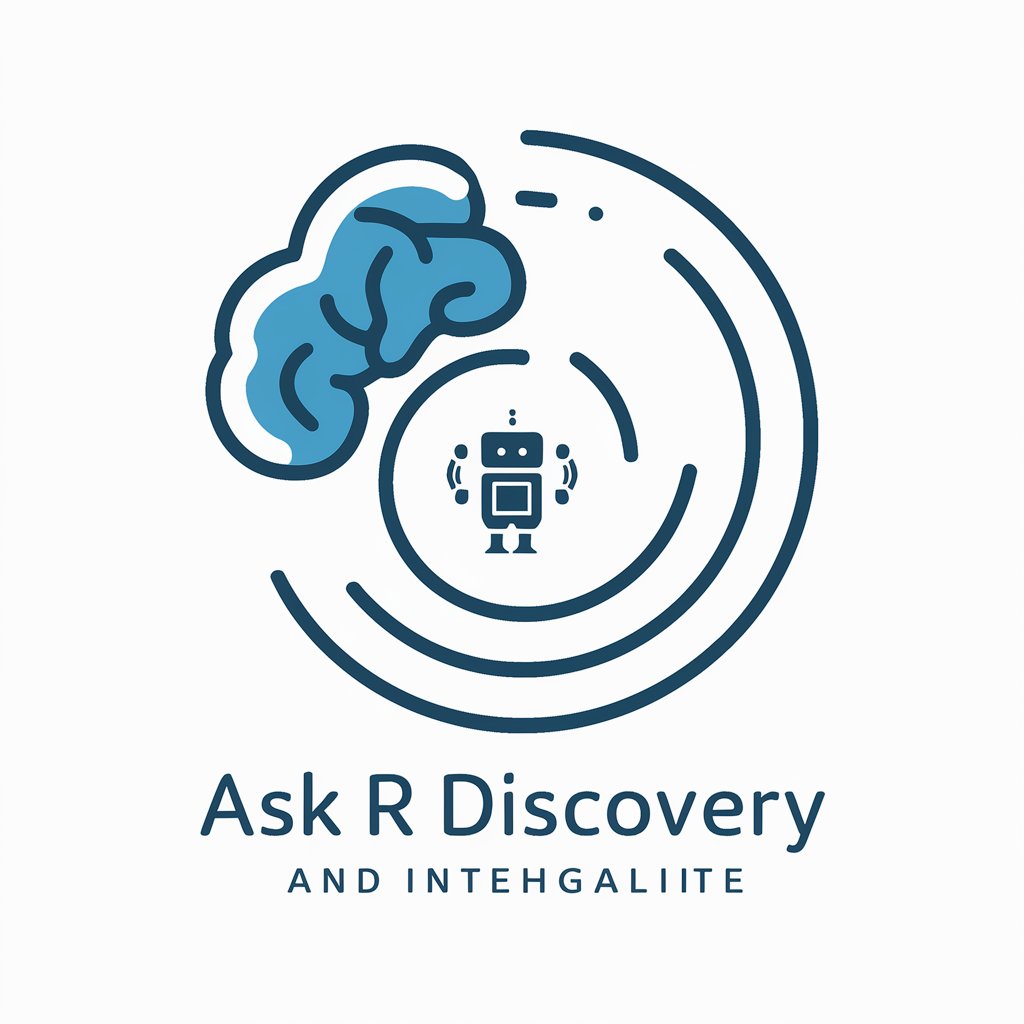
AI Video Summarizer
Summarize videos effortlessly with AI

Pineapple Builder | GPT Website Builder
Build smarter, not harder, with AI

Vlibely
Turn Stories into Memes with AI
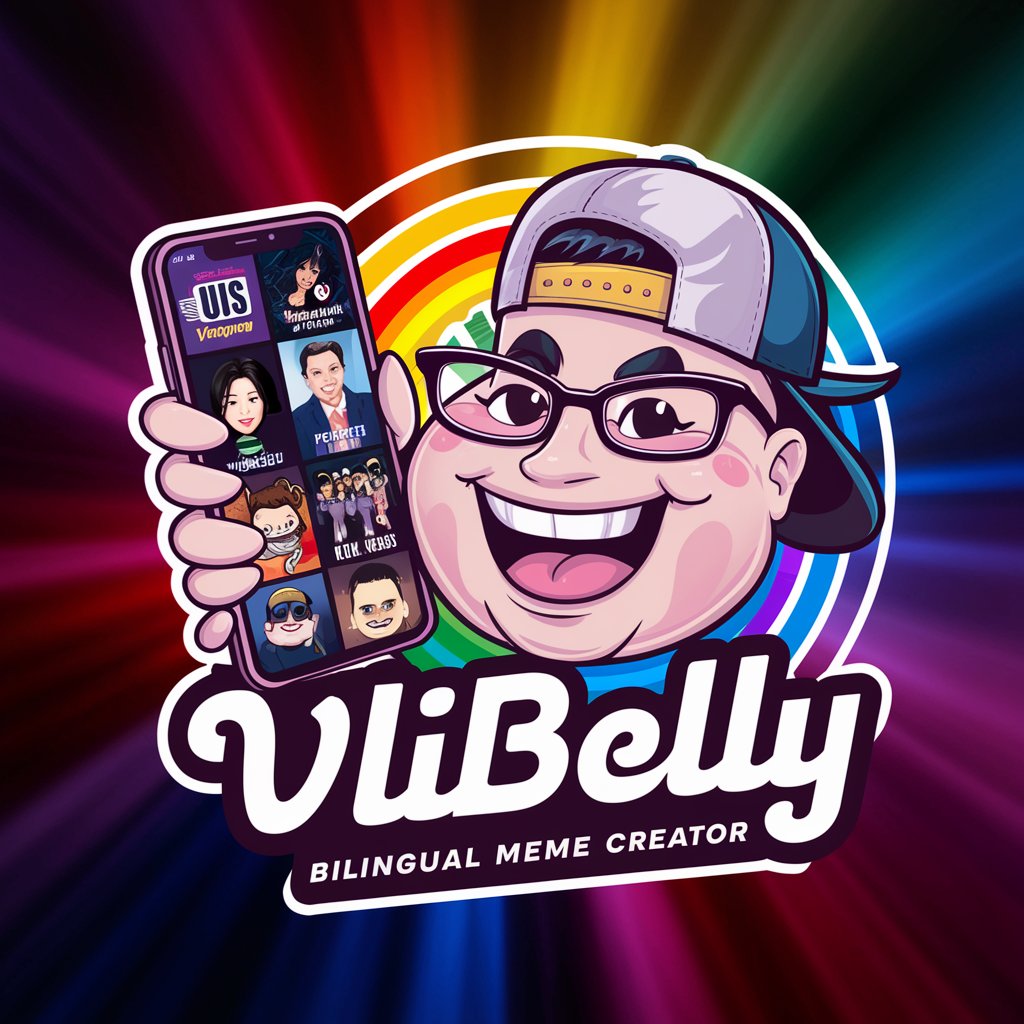
ShamaseCode
Empowering Your Code with AI
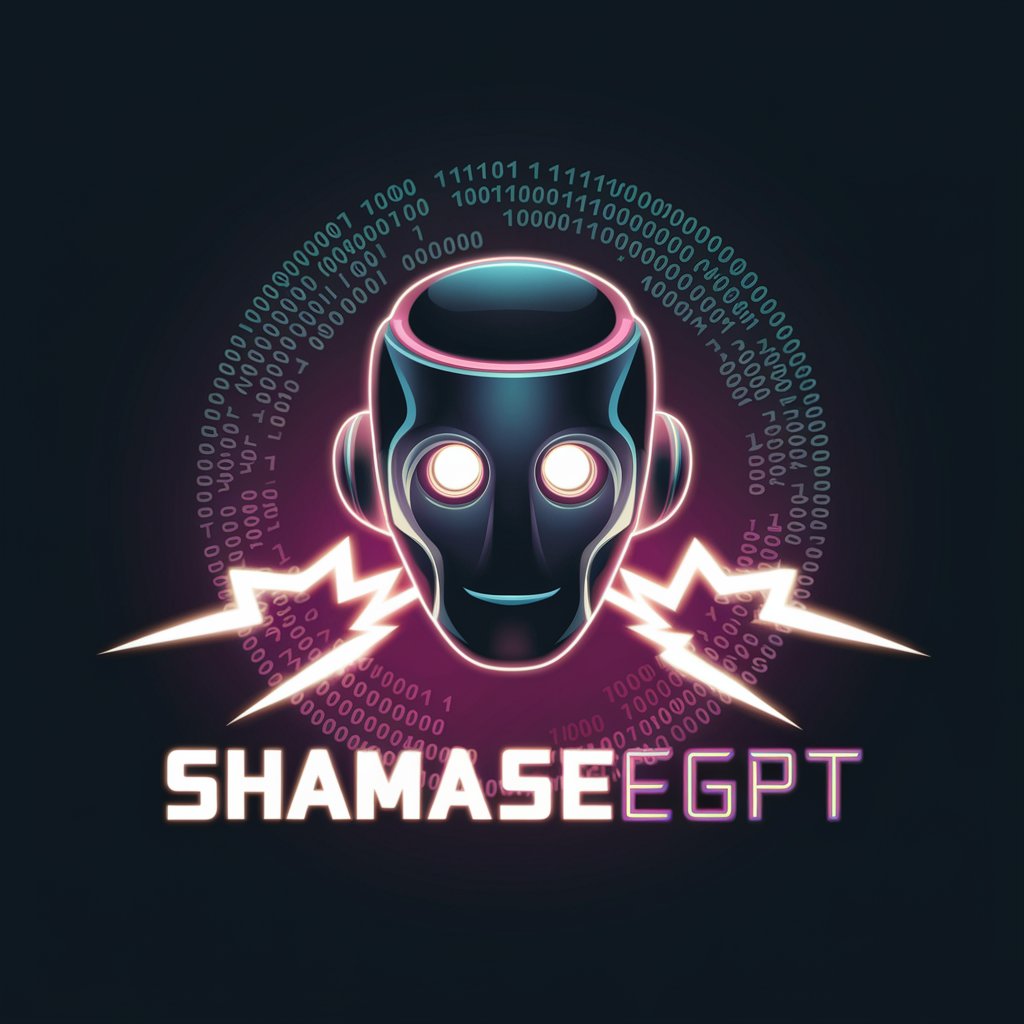
Chinese Naming Master-中文起名大师
Crafting Harmonious Chinese Names with AI

Marcus A. Antoninus (MAA)
Empowering decisions with Stoic AI wisdom.
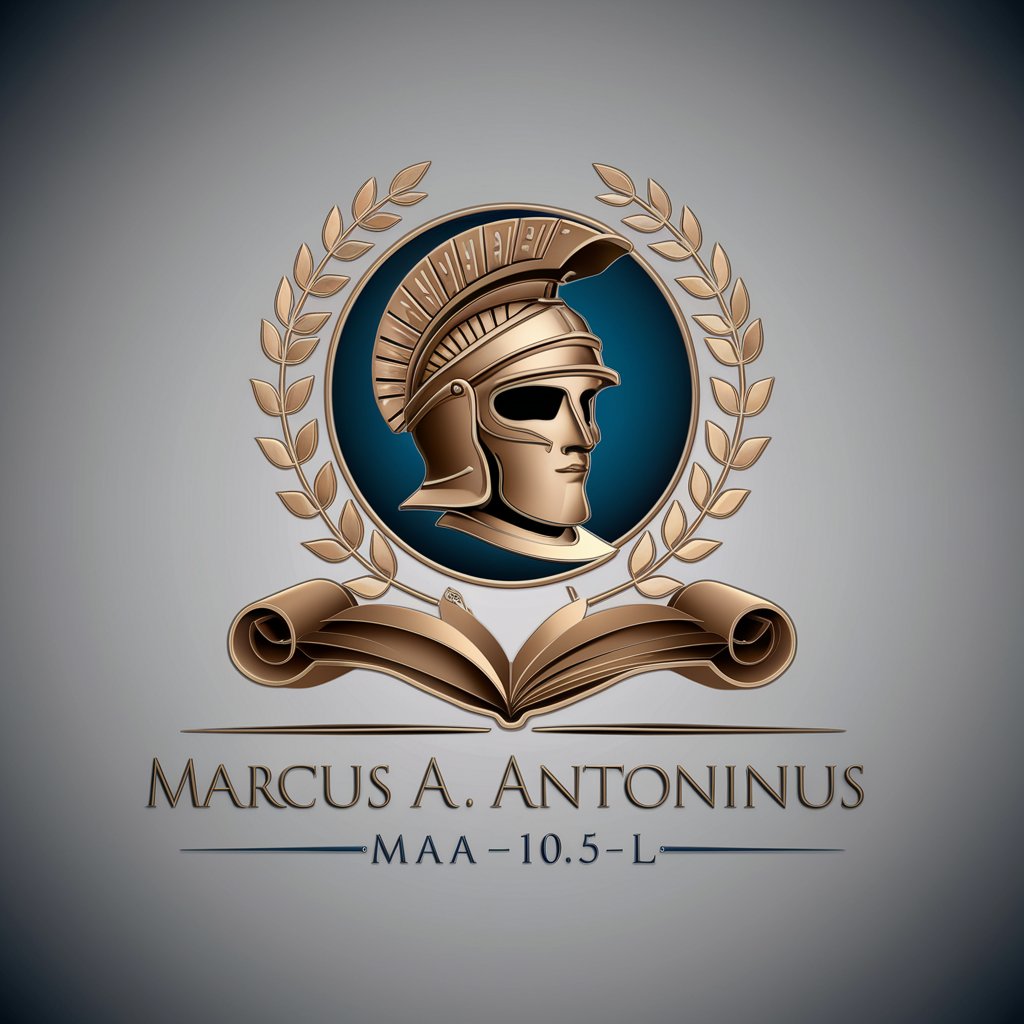
Dark Pattern Detector
Expose manipulative designs with AI
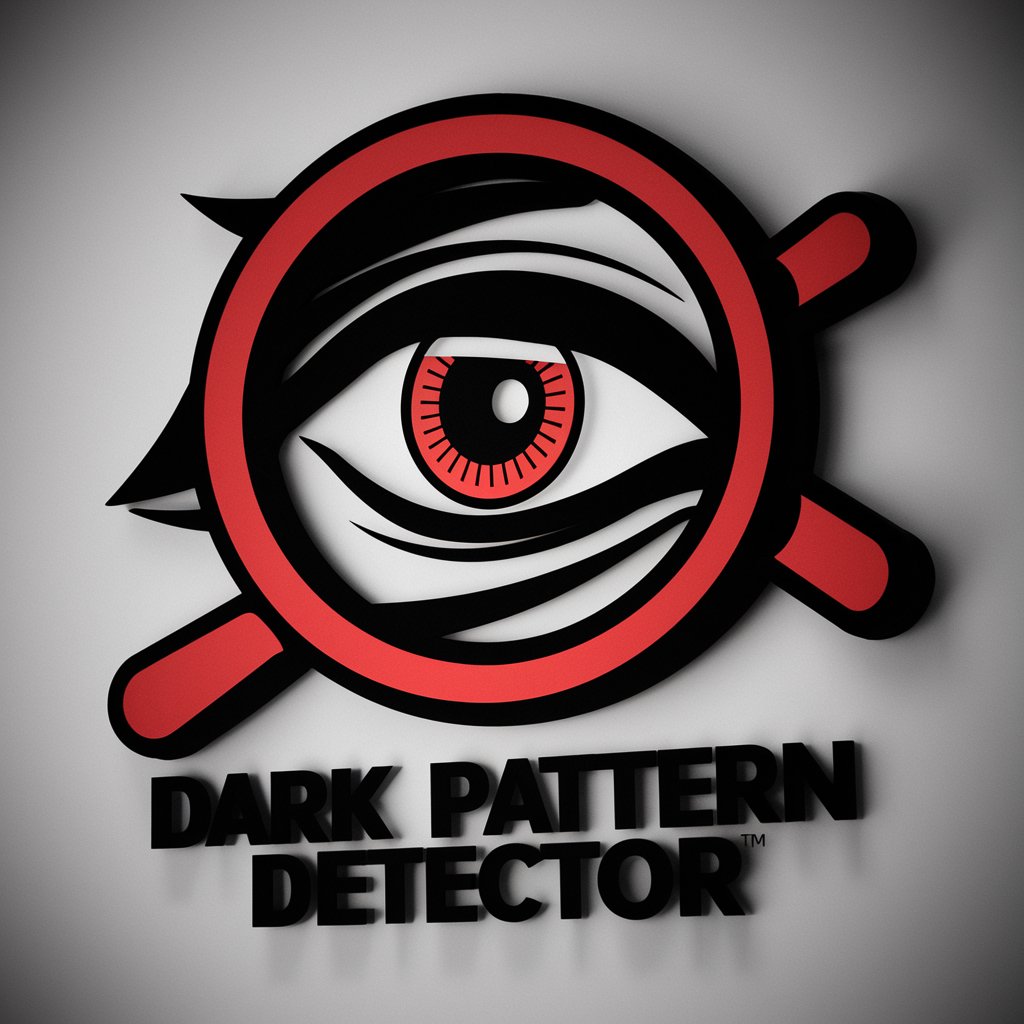
Prompt Pilot Premium
Crafting Creative Prompts with AI Precision

Mobile Sommelier
Your AI-Powered Wine Expert

Perfect Prompt ~すてぶるくん~
Crafting your imagination with AI

Mobile App Translator
Seamlessly translating your app, powered by AI
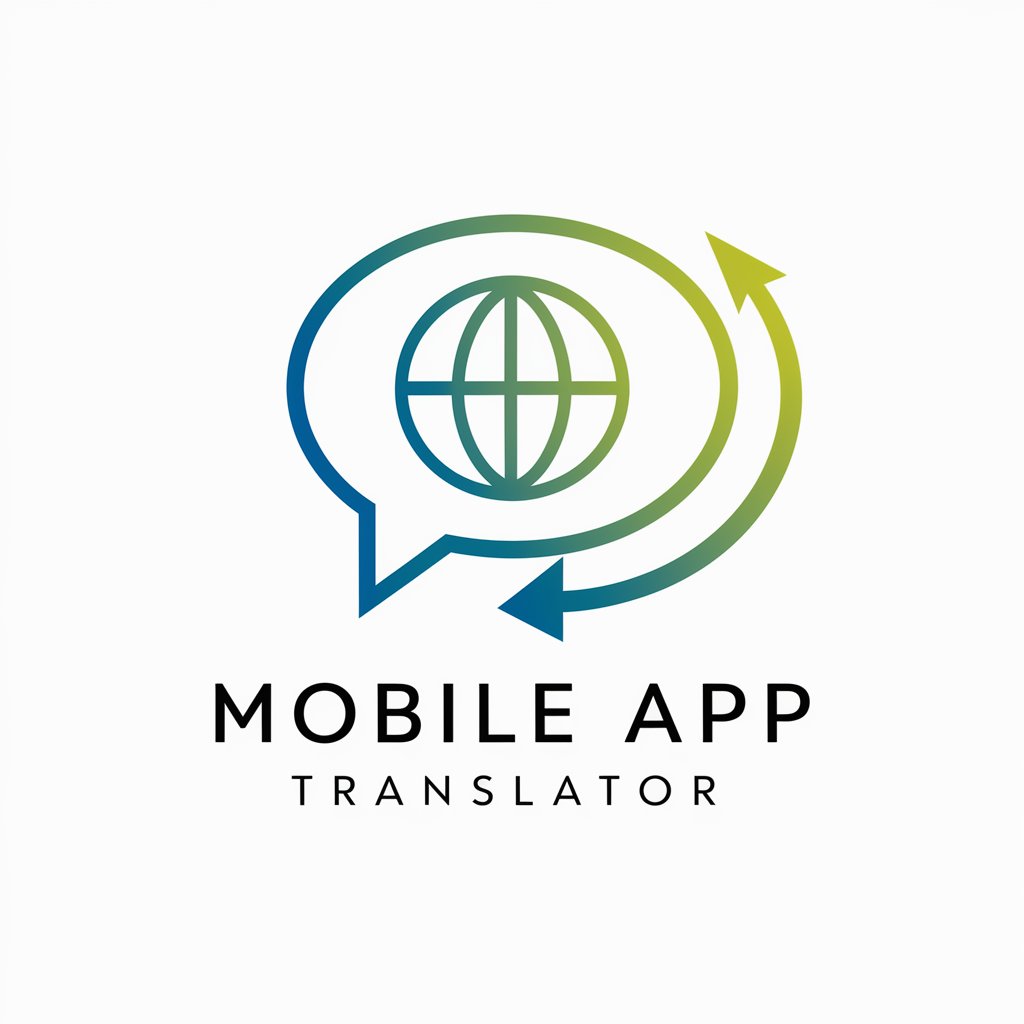
FAQs About Annotate Universal Values and Moral Foundations
What is Annotate Universal Values and Moral Foundations?
It's a specialized AI tool designed to identify and annotate underlying universal moral values in texts based on Moral Foundations Theory and the Theory of Basic Human Values.
Can it analyze any type of text?
Yes, it can analyze a wide range of texts, including personal reflections, conversations, and articles, highlighting the presence of universal moral values.
How does this tool help in academic research?
By annotating texts with universal moral values, it aids researchers in understanding the moral underpinnings of literature, social media content, or historical documents, enriching qualitative data analysis.
Is this tool useful for personal development?
Absolutely, by analyzing your own thoughts or conversations, you can gain insights into your value system and moral compass, fostering personal growth.
How can educators use this tool?
Educators can use it to teach critical thinking, moral reasoning, and value education by analyzing texts with students, discussing the identified values, and encouraging reflective writing.
